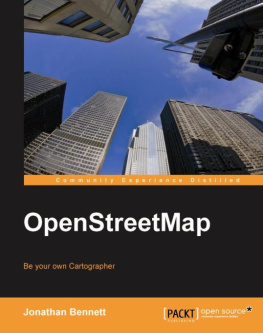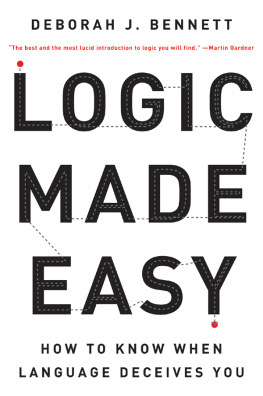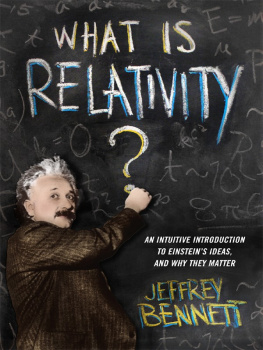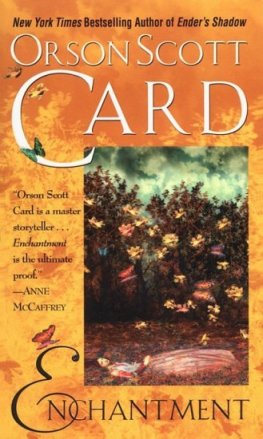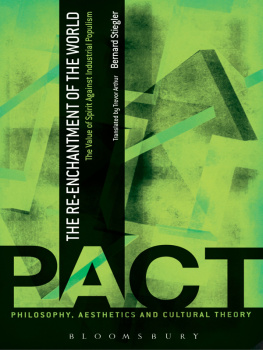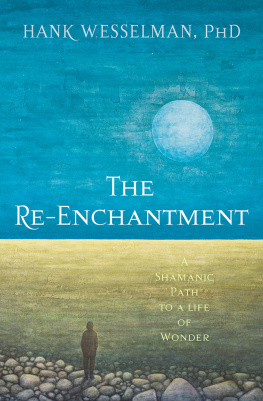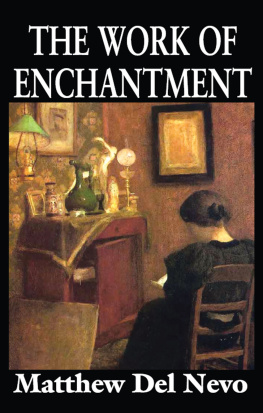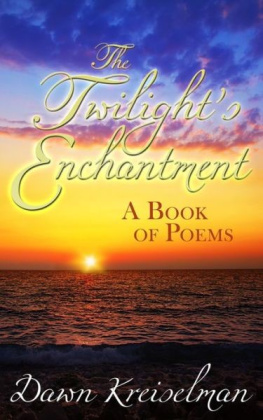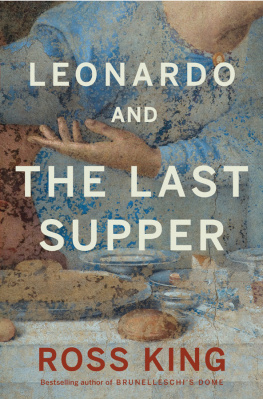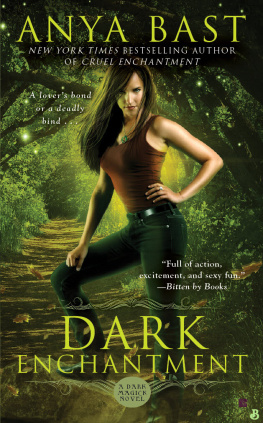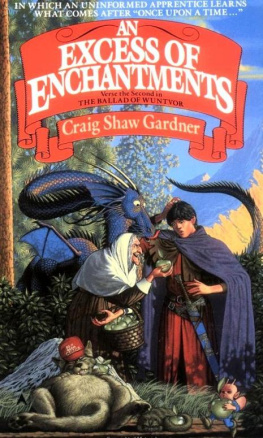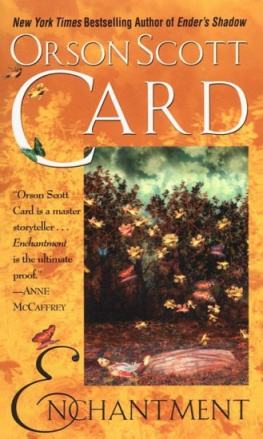
THE ENCHANTMENT OF MODERN LIFE
THE ENCHANTMENT OF MODERN LIFE
ATTACHMENTS, CROSSINGS, AND ETHICS
Jane Bennett
PRINCETON UNIVERSITY PRESS PRINCETON AND OXFORD
Copyright 2001 by Princeton University Press
Published by Princeton University Press, 41 William Street,
Princeton, New Jersey 08540
In the United Kingdom: Princeton University Press, 3 Market Place,
Woodstock, Oxfordshire OX20 1SY
All Rights Reserved
Library of Congress Cataloging-in-Publication Data
Bennett, Jane 1957
The enchantment of modern life : attachments, crossings, and ethics / Jane Bennett.
p. cm.
Includes bibliographical references and index.
ISBN 0-691-08812-8 (alk. paper)
ISBN 0-691-08813-6 (pbk. : alk. paper)
1. Ethics, Modern. 2. Civilization, Secular. I. Title.
BJ301 B46 2001
191dc21 00-069283
This book has been composed in Galliard
Printed on acid-free paper.
www.pup.princeton.edu
Printed in the United States of America
10 9 8 7 6 5 4 3 2 1
10 9 8 7 6 5 4 3 2
(Pbk)
ISBN-13: 978-0-691-08813-6 (pbk.)
Contents
Acknowledgments
THIS BOOK owes its existence to a lively group of colleagues who believe that theory matters. Over the past five years or so, they have responded to developing versions of my story with provocative criticisms, thoughtful elaborations, and encouraging interest. I am very fortunate to be engaged with them. My thanks to Anne Brown, John Buell, Eloise Buker, Penny Cordish, Ned Curthoys, Joshua Dienstag, Thomas Dumm, Blake Ethridge (who also prepared the index), Chris Falzon, Kathy Ferguson, Kennan Ferguson, Richard Flathman, Michael Gibbons, Katherine Gibson, Judith Grant, Bonnie Honig, Barry Hindess, Steven Johnston, Ann Kaplan, Thom Kuehls, Alessandra Lippucci, Tim Luke, Mary Marchand, Lori Marso, Sid Maskit, Sara Monoson, Pat Moynagh, David Owen, Davide Panagia, Paul Patton, George Shulman, Andrew Seligsohn, Jon Simon, David Snyder, David Tait, Michelle Tokarczyk, Mark Warren, Fred White, Nathan Widder, and Harlan Wilson.
My special gratitude to Kathryn Trevenen, who met with me at the Daily Grind, enabled me to clarify my voice, and introduced me to Horkheimer and Adornos work, and whose sensitive and insightful commentary has contributed so much to the book. I am grateful to Melissa Orlie for our animated conversations, her careful readers report, and her thoughtful wariness of certain elements of my project. John Docker read much of the manuscript, charmed and inspired me with his wit and insight, and pushed me to say things straight out. Ann Curthoys helped me to think about the disenchantment tale as a historical event, and I thank her for all our serious and playful discussions. I am also grateful to Donald Bennett for reading the manuscript and liking it and for his and Constance Bennetts love and support.
Stephen White read the entire manuscript and I hope that this version responds to his perspicuous comments about the ethics of enchanted materialism. I am indebted to his thinking about weak ontology and am the beneficiary of his exemplary generosity. Wade Sikorski contributed much to my understanding of mind-body relations and I am lucky to have his friendship and his thoughtful commentaries on several chapters. The book also has profited from Bill Chaloupkas encouragement and his insights about contemporary political culture. My sincere thanks, as well, to Brian Massumi for his thinking about affect, for his acute reading of the entire manuscript, and for pressing me to think about the conception of power employed in my story.
Deborah Connolly helped me to figure out what enchantment is, and she provides a model of the engaged intellectual and caring friend. I am indebted to Mort Schoolman and Michael Shapiro for their ideas about aesthetics and politics and about how to do theory in interesting ways. The book has also benefited from Wendy Browns thoughtful skepticism about commodity enchantment and from Robert Welchs thoughts on wonder and talent for practicing both philosophy and deanship. Rom Coles and Paul Saurette gave me their close and smart readings of several chapters and their provocative orientations to Kant. I am grateful to Lisa Disch for her helpful commentary and for reminding me that sometimes less is more. My heartfelt thanks to Moira Gatens for her thinking about corporeality and ethics, for her generous and astute reading of the manuscript, and for encouraging me to elaborate the relationship between a moral code and an enchanted sensibility.
I am grateful to Ian Malcolm of Princeton University Press for being a most supportive and effective editor. Blackwell Publishers Limited granted permission to reprint materials in .
Finally, I thank Bill Connolly, my partner in everything, for the inspiration of his Why I Am Not a Secularist, for his timely and thoughtful readings of the manuscript, for the seminars we taught together on Kant, Deleuze, Lucretius et al., and for the joys of our daily life.
THE ENCHANTMENT OF MODERN LIFE

The Wonder of Minor Experiences
Queasiness
Tereza was born of the rumbling of a stomach. That is how the novelist Milan Kundera describes the genesis of one of his characters. I take Kundera to be referring to his own affective state as he sat at his typewriter one day. Queasiness is something he felt, but it also participated in thought: the quivering sac in his abdomen helped to conceive the nervous, needy persona of Tereza. Indeed, a discomfiting affect is often what initiates a story, a claim, a thesis.
The story I tell is of a contemporary world sprinkled with natural and cultural sites that have the power to enchant. It is a story born of my own discomfort in the presence of two images circulating in political and social theory. The first is the image of modernity as disenchanted, that is to say, as a place of dearth and alienation (when compared to a golden age of community and cosmological coherency) or a place of reason, freedom, and control (when compared to a dark and confused premodernity). For me the question is not whether disenchantment is a regrettable or a progressive historical development. It is, rather, whether the very characterization of the world as disenchanted ignores and then discourages affective attachment to that world. The question is important because the mood of enchantment may be valuable for ethical life.
The second source of my queasiness is the image of ethics as a code to which one is obligated, a set of criteria to which one assents or subscribes. In this picture, the affective dimensions of ethics are drawn too lightly. Codes and criteria are indispensable parts of ethics, and surely they will not work without a sense of obligation or subscription. But these last things are still not sufficient to the enactment of ethical aspirations, which requires bodily movements in space, mobilizations of heat and energy, a series of choreographed gestures, a distinctive assemblage of affective propulsions. Nor can they nurture the spirit of generosity that must suffuse ethical codes if they are to be responsive to the surprises that regularly punctuate life.
Next page


